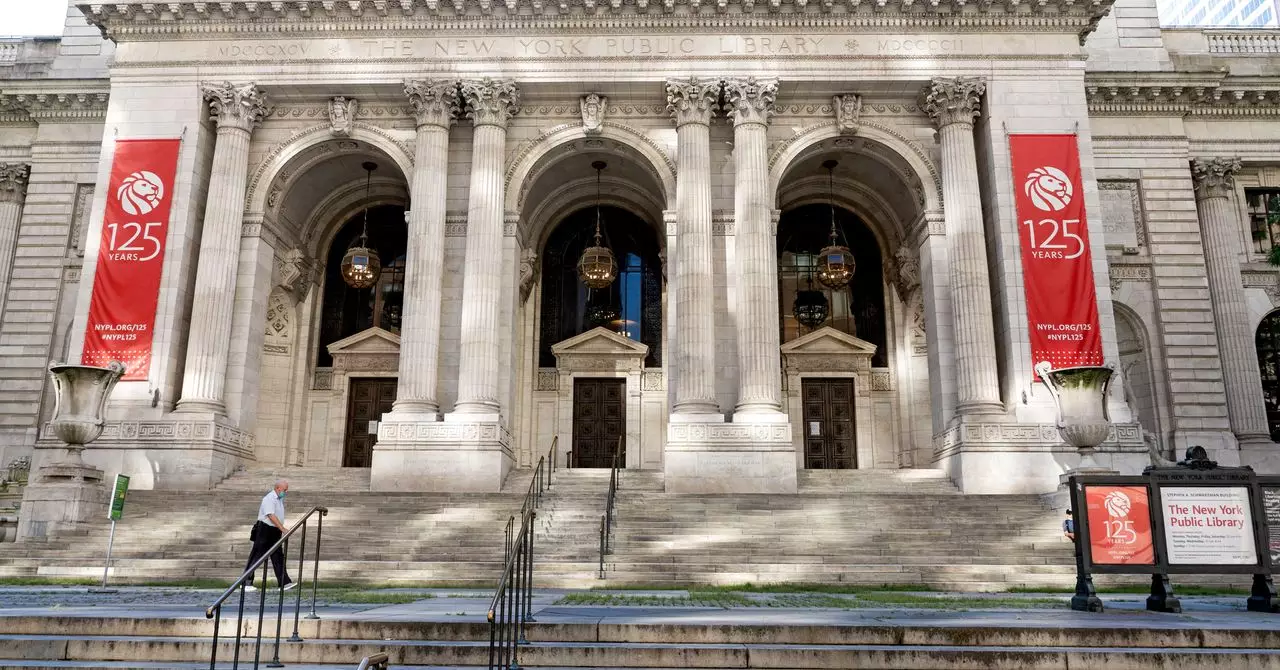The recent actions taken by the Trump administration have left an indelible mark on communities across the United States, particularly through the severe funding cuts imposed on the Institute of Museum and Library Services (IMLS). This federal agency plays a crucial role in supporting libraries and museums nationwide, and its budget is pivotal for ensuring accessibility to educational resources. The ramifications of the agency’s shrinking funds are reaching far beyond mere dollars and cents, threatening the very fabric of civic life, cultural appreciation, and educational opportunities for Americans of all ages.
Imagine a local library in a small town that has nurtured generations of students, provided safe spaces for community gatherings, and served as a gateway to knowledge through books and digital resources. With funding diminished to less than a dollar per user annually, vital programs aiding in student field trips, senior classes, and access to innovative technologies, like the eBook app Libby, are now in jeopardy. The abrupt transition of putting nearly the entire staff on administrative leave signals a loss of not just jobs, but of community historians, educators, and cultural custodians essential for nurturing civic engagement and pride.
The Silent Majority and Their Loss of Voice
The recent organizational restructuring within the IMLS, spearheaded by Keith Sonderling’s appointment as acting director, has sparked widespread concern among the agency’s employees and the communities they serve. Dismissing approximately 77 employees on such short notice raises serious questions about the long-term strategy for fostering cultural consciousness among future generations. When specialists—those who understand the intricate needs of libraries and museums—are cut from the picture, it represents more than just a workforce reduction; it’s an assault on the very avenues through which knowledge and creativity flow into society.
Employees reported feelings of heartbreak as they lost not only their jobs but also their sense of purpose in maintaining the educational frameworks that libraries and museums embody. The idea that our nation’s heritage and its educational resources stand to be compromised because of administrative whims is troubling. As one employee remarked, the notion of losing this service to the community is “heartbreaking on many levels.” This sentiment is echoed in communities that rely heavily on these resources to spawn curiosity, creativity, and intellectual growth.
Funding Cuts with Historical Significance
When examining the financial footprint of the IMLS, the agency’s annual budget—$269.5 million—comes to light as a meager investment in comparison to the vast responsibilities it shoulders. States like California and Texas, each receiving millions in funding, serve as exemplars of the essential roles libraries play in fostering public understanding and cultural appreciation. The direct grants flowing into local institutions, such as funds for art workshops and educational resources, have tangible benefits for underrepresented communities.
For instance, an art museum in Idaho was set to allocate over $10,000 towards enriching student experiences through organized field trips. Likewise, in North Carolina, a museum had received $23,500 to conduct weaving workshops for seniors. Such initiatives highlight the agency’s role as a catalyst for community empowerment, bridging generational gaps and fostering local traditions. With these resources now uncertain, the implications for ongoing projects are profound. The prospect of halting valuable educational programs disrupts not only individual growth but also the collective enrichment of our society.
A Call to Action: Reimagining Support for Cultural Institutions
The IMLS saga underscores a critical need for advocacy around the preservation of funding for public institutions. A systemic re-evaluation of how communities value educational funding is essential. Instead of considering cultural institutions as mere line items in a budget, we must prioritize them as vital components in the development of informed, engaged citizens. Policymakers must be urged to recognize the intrinsic connection between education and socioeconomic growth.
Rather than allowing monumental decisions to be made in silence, communities should rise to defend the interests of libraries and museums. They must engage in proactive dialogues with policymakers to ensure that funding isn’t just an afterthought but a priority. The grassroots movements that can flourish in response to this crisis hold the power to reshape perceptions on funding cultural institutions, reminding all how libraries and museums serve as sanctuaries of knowledge, creativity, and community identity. By empowering citizens to take charge, we can advocate for a future that sees our heritage and education flourishing rather than faltering.

